The Latest
|
Extreme Testing[magazine] Rapid application development means you have to accept that the things you build will need to change. Approach development in a way that makes it easy to transform yesterday’s code into what you need tomorrow. This article explains how testing works in the world of Extreme Programming. |
Ronald E. Jeffries
June 26, 2002 |
|
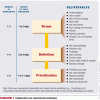 |
Collaborate for Quality[magazine] Project teams are searching for ways to develop requirements that are as free from defects as possible. Here's how you can use collaborative workshops, along with walkthroughs and QA checklists, to develop high-quality requirements. |
|
|
What's With These Buffer Overrun Bugs?[magazine] Many of the culprits responsible for security breaches found on corporate networks and the Internet today have used buffer overrun problems as the main way to exploit the system. Here is an examination of buffer overrun bugs and how to prevent them. |
Bob Johnson
June 26, 2002 |
|
 |
Bringing Your Test Data to Life[magazine] Tracking test results is one of the fundamental tasks that your software testing organization must perform to be successful. Explore how a customized database can enhance that process. |
Len DiMaggio
June 26, 2002 |
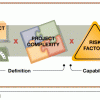 |
Estimating Time, Effort, and Cost[magazine] Correctly judging project needs and scope is a challenging task. Here are some techniques and tools for accurately predicting project deliverables. |
David Garmus
June 26, 2002 |
 |
Keys to Setting Achievable Goals[magazine] David Schmaltz identifies five types of goals—aspirations, constraints, regulators, targets, and legacies—and shows how to find common understanding and create meaningful objectives in team projects. |
David A. Schmaltz
June 26, 2002 |
|
Build It or Buy It?[magazine] When software professionals need a tool to support their work, a common dilemma is whether to build the necessary tool or purchase it. Here's a look at the benefits, risks, and myths associated with each approach. |
||
|
Case Study: Selling the CMM[magazine] Envision a slow day, a slow meeting, and someone says in a nonchalant manner something like, "Raise your hand if you want to do a CMM." Only two hands go up—but it makes a difference whose hands. From this casual setting develops an all-out effort involving hundreds of people in training, implementing, and integrating the CMM into the development culture. Here is the story of how one large financial services company mobilized for its CMM initiative. |
J. James Jacobsen
June 26, 2002 |
|
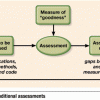 |
When Assessments Are Relative[magazine] Taking development and business contexts into consideration can mean the difference between a correct assessment and a useful assessment. Here's information on how to provide an assessment that's both correct and effective. |
Bob King
June 26, 2002 |
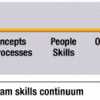 |
Managing the Communication Storm Front[magazine] The communication storm front is a real phenomenon that crops up in all development teams and in all organizations. You need not be the victim of such storms. You, as development manager, have the tools to reduce the power of the storm front and create a team that is ever more effective and efficient. |
Elizabeth K. Schmitz
June 26, 2002 |
 |
Finding the Signal through the Noise[magazine] A major challenge for software professionals interpreting data is deciding what's real and what isn't, what matters and what doesn't. A useful way to think about it is that you are trying to find the signal in the noise produced by random variation and error. Here is advice on how to extract the useful information from the "noise." |
Jarrett Rosenberg
June 26, 2002 |
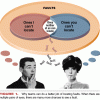 |
Weinberg on the Essential Team[magazine] The team is the basic design unit for software engineering processes. Within the team, reviewers can learn without having to admit to ignorance, and their learning is always relevant to the team's tasks. When there are multiple eyes, there are many more chances to see a fault. Learn how to create and get the most from your team. |
Gerald M. Weinberg
June 26, 2002 |
|
Testers and Developers Think Differently[magazine] Appreciating differences is critical for productive teams. Different approaches aid in finding solutions, and mutual respect dramatically improves group problem solving. Testers should not be judged according to developer criteria. |
||
|
Getting Published[magazine] Why would you want to get published? Why take time out from doing real work to share your thoughts with others? After all, didn't we gladly leave writing behind when we got out of school? But when you share your experiences, you play a part in a larger picture, leaving your mark on the world, and advancing your field. |
||
|
Behind Closed Doors: What Every Tester Should Know About Web Privacy[magazine] The explosion of personal information on the Web has made privacy a primary concern. Here are pointers on making sure your site works for security-conscious users, as well as information to help you avoid inadvertent compromises of privacy. |
Russ Smith
June 26, 2002 |




